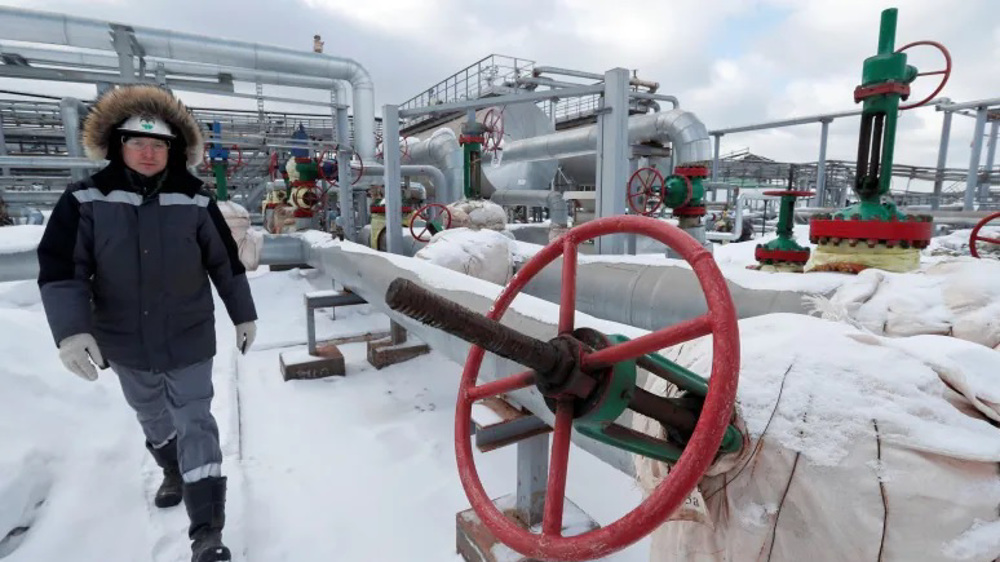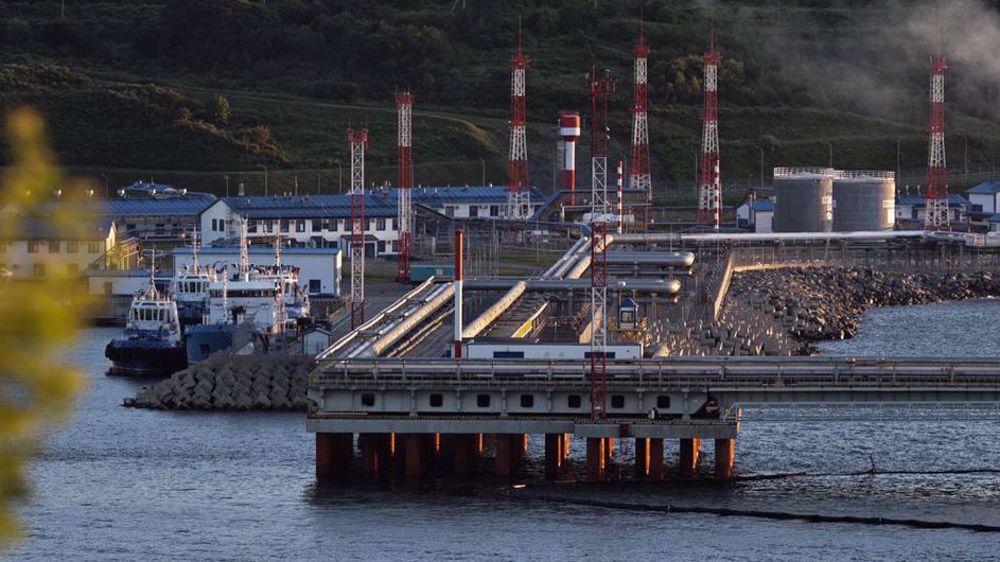Moscow calls on Europe to live without Russian oil as Macron sounds energy alarm
Moscow has condemned a so-called "price cap" on Russian oil, insisting that it will continue to sell its oil in markets outside Europe.
“Starting from this year Europe will live without Russian oil,” Mikhail Ulyanov, Russia’s Permanent Representative to International Organizations in Vienna tweeted on Saturday.
“Moscow has already made it clear that it will NOT supply oil to those countries who support [the] anti-market price cap,” he added.
Starting from this year #Europe will live w/o Russian oil. #Moscow has already made it clear that it will NOT supply #oil to those countries who support anti-market price cap. Very soon the #EU will blame #Russia for using oil as a weapon.
— Mikhail Ulyanov (@Amb_Ulyanov) December 3, 2022
Meanwhile, the Russian Embassy in Washington noted in a statement on Saturday that officials in the country were “confident that Russian oil will continue to be in demand.”
On Friday, the European Commission declared that the EU would be imposing a “global price cap on seaborne oil from Russia” of $60/barrel.
Under the scheme, insurers and brokers who service oil tankers which ship Russian fuel exceeding the price limit determined by Brussels would risk being sanctioned.
The European Commission President Ursula von der Leyen said, “The EU agreement on an oil price cap… will reduce Russia’s revenues significantly.”
She insisted that the move would also “help stabilize global energy prices, benefiting emerging economies around the world.”
The EU agreement on an oil price cap, coordinated with G7 and others, will reduce Russia’s revenues significantly.
— Ursula von der Leyen (@vonderleyen) December 2, 2022
It will help us stabilise global energy prices, benefitting emerging economies around the world. pic.twitter.com/3WmIalIe5y
Macron calls on the French to use less energy
Meanwhile, French President Emmanuel Macron warned people in his country not to waste any energy and be prepared for power cuts during winter.
"First of all, let us be clear: no panic! It is legitimate for the government to prepare for the extreme cases which would mean cutting off electricity for a few hours per day if we did not have enough power," Macron said in an interview with French TV station TF1.
According to a plan proposed by the French government, power cuts could be avoided if energy consumption would decrease by 10 percent.
However, French government officials have warned that power cuts would occur when the energy grid is overly strained, in the event of the combination of unusually cold weather, ongoing problems at French nuclear plants and the failure to purchase extra power supplies from neighboring countries.
On Thursday, the head of French power grid operator RTE said France may face "some days" of power cuts.
In the meantime, French authorities across the country have been tasked with preparing an emergency response solutions in the event of a power cut in their area.
Particularly, households with high-risk patients, who depend on at-home medical equipment, will be impacted by the possible power cuts.
The Ministry of Education is to develop plans to close schools if the area is to be impacted by rolling blackouts. Having schools open during power cuts could have negative ramifications, considering a lack of heating, alarm systems and lighting.
At the same time, to make matters worse this winter the French government decided to stop the nationwide fuel subsides on December 31.
The war in Ukraine has massively increased oil and gas prices as both Russia and the West play hydrocarbon supplies as a bargaining chip to force the other’s hand.
The market price of fuels and electricity has adjusted accordingly, triggering double-digit energy inflation.
The increase in fuel prices amid the warnings of power cuts has prompted many people to start burning firewood.
Now, firewood providers are warning that due to a sharp increase in the number of households in the market there will not be enough wood for everyone this winter.
In 2019, according to a report from wood group le Comité national pour le développement du bois, there were “between 7.5 and 8 million households in France that have a firewood fuelled heating source installed (both logs and wood pellets)”.
However, in 2022, the energy watchdog l'Agence de l'Environnement et de la Maîtrise de l'Energie (ADEME) said 9.5 million households were using woodfired energy, warning that the number of households burning firewood would go higher despite the environmental damages.
Unprecedented demand for firewood
Gérard Fellous, director of Quality-bûches, told Le Figaro, “Over the last few weeks, ADEME has greatly promoted heating with pellets. But this has caused a significant increase in the price of wood."
“Pellet prices have tripled over the past six months, leading to rises in logs and our costs.”
Fellous also said that the cost of raw wood has risen by 20 percent, requiring producers to pass the cost onto their customers. He said, “I have seen three rises since the start of the summer, which are purely due to repercussions from [rising] prices from the supplier.”
Fellous pointed out that demand began early in July this year, when usually it only started in autumn.
“Without doing any advertising,” he said,” I receive 100 calls per day, which I send straight to voicemail. This has never happened, it’s unheard of.”
Julian, a heating wood supplier, also said that he “had never seen such demand in my life”. He said he is receiving 40 calls per day, versus just five normally. He said, “I hope that winter won’t be severe, otherwise it will get very complicated.”
Read more:
EU, G7 agree on price cap on Russia oil imports
Russia’s Gazprom: Gas price cap would lead to suspension of supplies to Europe
West’s ‘dangerous’ price cap won’t curb demand for Russian oil: Moscow
He has started to limit the number of supplies he can sell per person. Patrick Helb, a wood seller in Moselle, said, “There is no more stock anywhere, I am keeping my supplies for my usual regulars, and hoping to hold out until the end of the winter.”
A meter cubed of wood usually sells for €55-57 each, but now Helb is selling them at €60 to €65.
It also comes after a change in a law from September 1, which requires wood sellers to offer clients information on their wood, including about the fuel, length, quantity, and humidity levels. From September 2023, logs measuring less than two meters must only be of dry wood.
This is likely to cause an extra shortage in the future, given that it takes 18-24 months to fully dry firewood.
Iran warns against US-Israeli plot to weaken Muslims, dominate region
VIDEO | Public uproar in US against Israeli regime
‘Ghost town’: 70% of Jabalia buildings destroyed by Israel
Mother’s Day: Sareh Javanmardi’s inspiring journey as Paralympic champion and mother
Russia downs over 40 Ukrainian drones as Putin vows 'destruction' on Kiev
VIDEO | Yemen: A bone in Israeli neck
D-8’s role in Iran’s economy after Cairo summit
China slams US as ‘war-addicted’ threat to global security


















 This makes it easy to access the Press TV website
This makes it easy to access the Press TV website